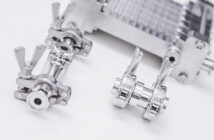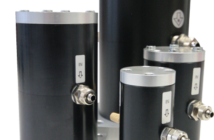By Grant Bennett, Janette Busch and Malik Hussain
Faculty of Agriculture and Life Sciences, Lincoln University
The use of probiotics as feed supplements is becoming an increasingly popular way to improve the health and productivity of livestock.
Probiotic feed supplements are difficult to use in agricultural settings mainly because of a lack of refrigeration facilities across the length of the supply chain.
This situation causes challenges in storing, retailing, delivering and administering probiotics as animal feed supplements.
As a result, it is important to understand the stability and viability of the probiotic microorganisms within them to successfully use probiotics as feed supplements.
The food microbiology group at Lincoln University investigated the status of the viability of probiotics in four products currently used on dairy farms in New Zealand.
The viability of cells in each product was assessed using live, dead, staining and total plate counts.
The total number of cells was measured using the qNanoTM technology of Izon, originally designed to count nano-particles.
The group used it to count the numbers of microbial sized objects or cells in each product.
The use of qNano technology showed its potential to measure microbial cells in the fermented products. Further investigation is needed to optimise conditions for applying qNanoTM technology in this area.
Interestingly, all probiotic feed supplements were found to have very similar numbers of total microbial cells.
However, million fold (106 cfu/mL) differences were observed in the numbers of live cells able to be recovered on culture plates from the four products tested.
Our findings showed that these probiotic feed supplements had huge differences in the number of live cells present in each product.
No tests on the efficacy of the probiotic feed supplements were made.
Some companies claim that the microbial metabolites produced during fermentation were responsible for health improvements of the livestock and, by implication, the probiotic microbes may not necessarily have to be viable to have a beneficial effect.
Our study shows that it is imperative for farmers to choose a specific product for a particular application within their farming system.





























































































